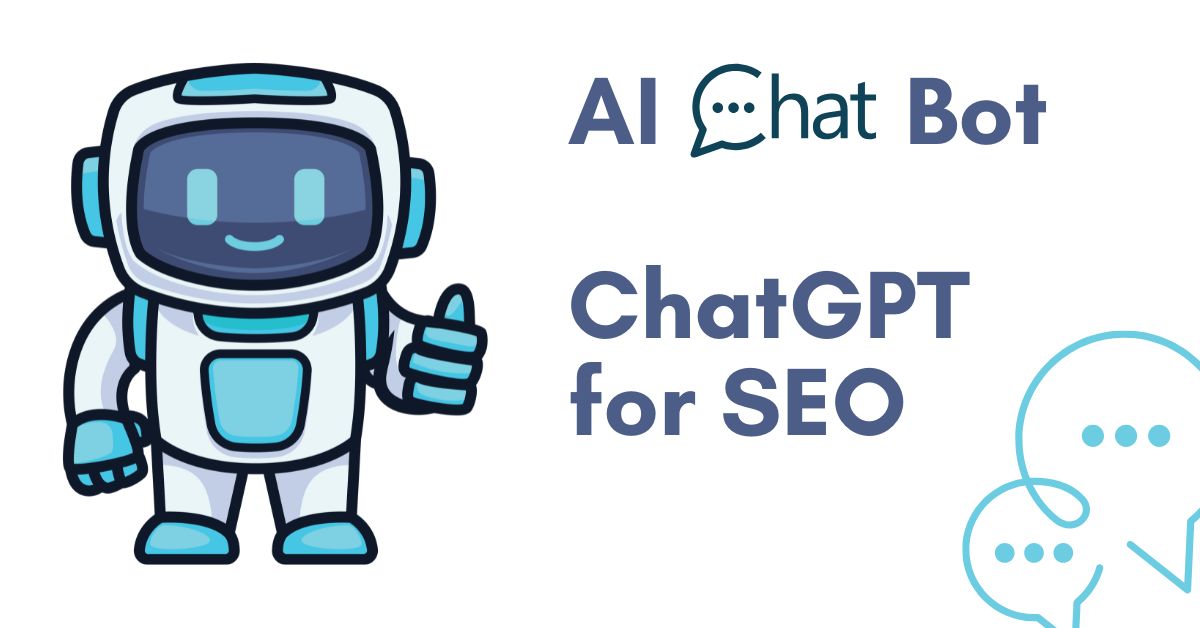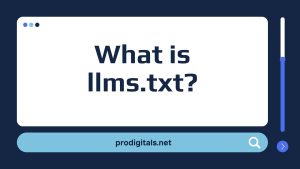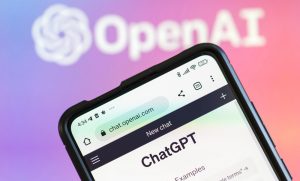Updated for 2025
In late 2022, the internet witnessed a revolution with the arrival of ChatGPT, an advanced AI language model developed by OpenAI.
Designed to simulate human-like conversations and generate a wide range of responses, ChatGPT has quickly integrated itself into many areas of professional and personal life.
But what exactly is ChatGPT?
The name stands for “Chat Generative Pre-Training Transformer” — a powerful machine learning model capable of producing coherent text based on the data it was trained on.
- “Generative” refers to its ability to create content based on prompts.
- “Pre-trained” means it was trained on massive datasets before being fine-tuned through human feedback.
- “Transformer” is the underlying neural network architecture that powers its capabilities.
Today, businesses, marketers, developers, and everyday users are exploring how to harness ChatGPT’s immense potential.
Yet many still wonder:
Is this technology an incredible opportunity — or a major threat?
The reality is that AI tools like ChatGPT offer endless possibilities for improving efficiency, creativity, and innovation — especially in fields like SEO (Search Engine Optimization).
If you’re an SEO professional, marketer, or content creator, learning how to effectively use ChatGPT can save you countless hours and dramatically enhance your results.
Table of Contents
- What is ChatGPT and How It Works
- How to Communicate Effectively with ChatGPT
- Top 5 Ways SEO Specialists Can Use ChatGPT
- The Future of SEO and AI: Threat or Opportunity?
- Final Thoughts: Why You Should Start Using ChatGPT Today
1. What is ChatGPT and How It Works
Before we dive into the practical SEO applications of ChatGPT, it’s important to understand how this powerful AI system functions.
ChatGPT is a large-scale language model developed by OpenAI, built to simulate human-like conversation and generate text in response to user prompts.
At its core, ChatGPT relies on three key components:
- Generative Capabilities
ChatGPT can generate new text based on the input it receives. It’s not just regurgitating data — it’s creating original responses within the context of the conversation. - Pre-Training on Massive Data Sets
Before it ever interacted with users, ChatGPT was trained on billions of pieces of text from books, articles, websites, and more. This broad exposure allows it to understand language patterns, context, and relationships between ideas. - Transformer Architecture
The model uses an advanced form of deep learning called a transformer neural network. This allows it to “transform” input data into intelligent, coherent responses that closely mimic human communication.
Essentially, ChatGPT combines extensive knowledge with complex pattern recognition to predict and generate the most appropriate next word, phrase, or paragraph in a conversation.
Is ChatGPT a Threat or an Opportunity?
The rise of ChatGPT has sparked both excitement and fear.
On one hand, it offers incredible possibilities:
- Automating repetitive tasks
- Generating creative ideas on demand
- Providing quick technical support
- Assisting with research, content creation, and even coding
On the other hand, some fear that AI could replace jobs, disrupt industries, and create ethical challenges.
The truth is, AI is a tool — and like any tool, its impact depends on how humans choose to use it.
For SEO professionals, marketers, and digital creators, ChatGPT presents a golden opportunity to:
- Work smarter and faster
- Enhance creativity
- Focus more energy on strategy and high-value tasks
Throughout this guide, we’ll explore exactly how you can leverage ChatGPT to boost your SEO efforts without losing the human touch that makes great marketing truly powerful.
2. How to Communicate Effectively with ChatGPT
One of the most important things to understand about ChatGPT is that the quality of the output depends heavily on the quality of your input.
If you want powerful, accurate, and helpful responses, you need to learn how to “speak” the right way to AI.
Here’s how to communicate effectively with ChatGPT to maximize its potential for SEO and beyond:
Train ChatGPT Through Smart Prompting
ChatGPT doesn’t just guess what you want.
It relies on the information and guidance you provide through your questions and instructions.
The more detailed, specific, and context-rich your prompts are, the better the results you’ll get.
For example, instead of simply asking:
“Write a meta description for my blog post.”
You could say:
“Write a 155-character SEO-optimized meta description for a blog post about ‘How to Improve Website Speed for Better Rankings’ in a friendly, expert tone.”
Notice how much more clear and targeted the second prompt is.
ChatGPT performs significantly better when you build the conversation progressively, adding layers of instruction.
Example of Progressive Prompting
Imagine you are preparing a blog post and need help with the SEO meta description.
Here’s how you could train ChatGPT step-by-step:
- Start broad: “Suggest a meta description for a blog post about website speed optimization.”
- Refine: “Keep it under 160 characters and make it sound actionable.”
- Further specify: “Include the phrase ‘boost your site speed’ naturally.”
- Request options: “Give me 5 different variations to choose from.”
Through this iterative dialogue, you “teach” ChatGPT exactly what you’re looking for — and the quality of the final outputs improves dramatically.
Give Clear and Specific Commands
ChatGPT’s knowledge base is enormous.
If your questions are too vague or general, the AI might provide inaccurate or unhelpful answers.
For example:
- Vague prompt: “How should I use headers in a blog post?”
- Specific prompt: “How many H1 tags should I use in a blog post optimized for SEO? What about H2 and H3 tags?”
Lesson:
Always be precise about what you want to avoid confusion and get actionable, accurate advice.
Provide Examples to Guide ChatGPT
Another way to drastically improve ChatGPT’s responses is to give examples.
Instead of just saying:
“List all Apple products.”
You can guide the model by saying:
“List Apple products, such as iPhone, MacBook, iPad, and Apple Watch, focusing only on the latest models.”
Providing examples helps ChatGPT understand your expectations more clearly — leading to more relevant and useful results.
Pro Tip:
ChatGPT’s training data is current up to 2021, so for newer products or events, double-check or provide updated context manually.
Ask Questions in English for Best Results
Although ChatGPT supports multiple languages, it generates the best results in English.
That’s because the majority of its training data comes from English-language sources.
If you’re multilingual and feel your answer in Bulgarian isn’t great — try:
- Asking the question in Bulgarian.
- Telling ChatGPT to translate it into English.
- Getting the final answer in English.
- If needed, asking it to translate the answer back to Bulgarian.
This simple trick often delivers more accurate, detailed responses.
Use Role-Playing to Get Specialized Answers
Want an answer from the perspective of an SEO expert?
Or a content strategist?
Or a web developer?
Tell ChatGPT to assume a role before answering.
For example:
“Act as an SEO specialist and recommend a content strategy for an ecommerce fashion website.”
Role-playing prompts let you tap into ChatGPT’s ability to simulate the thinking and strategies of different professionals — making your outputs even sharper and more useful.
Key Takeaway
ChatGPT is like a mirror:
The clearer and smarter your questions are, the more intelligent and helpful its answers become.
If you want to unlock ChatGPT’s full power, you must communicate thoughtfully, progressively, and strategically.
3. Top 5 Ways SEO Specialists Can Use ChatGPT
Now that you understand how to communicate effectively with ChatGPT, let’s explore some practical ways SEO professionals can leverage this powerful AI to save time, boost productivity, and achieve better results.
Here are five game-changing applications of ChatGPT for SEO work:
1. Save Time with Formulas and Automations
As an SEO specialist, you know how much time is spent on repetitive technical tasks — and you also know that time is money.
Luckily, ChatGPT can help you create:
- Regular expressions (regex)
- Google Sheets formulas
- Custom scripts for data manipulation
- Bulk operations on URL lists
Example 1: Finding URLs Containing Numbers
Imagine you have a list of 1,000 URLs, and you need to find all URLs that include numbers (e.g., product IDs).
Manually checking them would take hours.
Instead, you can ask ChatGPT:
“Write a regular expression that filters URLs containing numbers.”
ChatGPT will instantly generate the regex you need, saving you massive amounts of time and reducing human error.
Example 2: Google Sheets Automation
Suppose you have two massive columns of data and need to find unique entries from the second column that don’t exist in the first.
Instead of sorting manually, you could ask ChatGPT:
“Write a Google Sheets formula that returns items from Column B not found in Column A.”
Boom — instant formula, problem solved.
🔹 Bottom Line: ChatGPT acts like your personal automation wizard, freeing you up to focus on higher-value SEO strategy.
2. Generate Code Quickly
ChatGPT’s ability to generate and explain code snippets is a dream come true for SEOs who often need simple scripts but aren’t full-time developers.
Examples of what ChatGPT can generate for SEO purposes:
- XML sitemaps
- Robots.txt files
- Schema markup for articles, products, reviews
- Basic HTML templates
- Scripts to clean up duplicate meta descriptions
Example: Create an XML Sitemap
You can feed ChatGPT a list of URLs and ask:
“Generate an XML sitemap using these URLs.”
ChatGPT will structure everything correctly — and even explain where to place the sitemap on your server.
You can also ask:
“Write JSON-LD schema markup for a blog post titled ‘Top SEO Trends for 2025’.”
Result: High-quality structured data ready for Google to index properly.
3. Craft Catchy Titles and Unique Content Structures
Content is still king — but brainstorming titles, subheadings, and post outlines can be exhausting.
ChatGPT helps speed up content ideation by:
- Suggesting engaging blog titles
- Structuring SEO-friendly outlines
- Proposing subheadings based on keywords
- Creating content skeletons to be expanded into full articles
Example: Blog Post About Women’s Sunglasses
Prompt:
“Suggest 5 catchy blog post titles for a post about women’s sunglasses.”
ChatGPT might return ideas like:
- “Top 10 Stylish Women’s Sunglasses for Summer 2025”
- “How to Choose the Perfect Sunglasses for Your Face Shape”
From there, you can request an outline and content plan — reducing your brainstorming time from hours to minutes.
4. Paraphrase and Enhance Existing Content
Paraphrasing is essential when:
- Repurposing content across different platforms
- Refreshing outdated blog posts
- Avoiding duplicate content penalties
ChatGPT can:
- Rewrite paragraphs while preserving meaning
- Shorten or expand sections
- Suggest alternative phrasing for better engagement
Example: Travel Blog Title Rework
Original:
“Vacation in Turkey: A Journey to Remember”
Ask ChatGPT:
“Rewrite this blog title to sound more poetic and appeal to older audiences.”
Result:
“Golden Memories: Embracing the Beauty of a Turkish Getaway”
With minimal effort, you get multiple stylistic variations, making your content more versatile and fresh.
5. Solve Complex Problems with Step-by-Step Instructions
ChatGPT isn’t just about writing — it can also guide you through processes in an easy, step-by-step manner.
Example tasks you can solve with ChatGPT’s help:
- Setting up Google My Business profiles
- Resolving SEO technical issues (like 301 redirects or canonical tags)
- Configuring analytics tracking
- Handling duplicate content problems
- Improving Core Web Vitals performance
Simply prompt:
“Give me a step-by-step guide to set up a Google My Business account for a local bakery.”
ChatGPT will walk you through each step clearly — no need to spend hours digging through tutorials.
Bonus: Even More Use Cases
- Generate FAQ content and markup
- Plan internal linking strategies
- Create ALT text suggestions for images
- Brainstorm topics for link-building outreach
- Analyze and summarize SEO reports
The possibilities are truly endless — and new ones emerge as ChatGPT evolves.
4. The Future of SEO and AI: Threat or Opportunity?
The emergence of AI tools like ChatGPT has raised an important question for many SEO specialists and marketers:
Is AI a threat to our profession — or a new opportunity for growth?
The answer isn’t black and white. It depends on how you choose to respond to the changes happening around you.
Let’s explore what the future holds.
Will AI Replace SEO Professionals?
While some fear that AI will eliminate jobs, the reality is more nuanced.
AI will automate repetitive, time-consuming, and technical tasks — but it cannot replace:
- Human creativity
- Strategic thinking
- Deep understanding of audiences
- Emotional intelligence
- Brand storytelling
SEO is more than just writing keywords into pages.
It’s about building trust, providing value, and navigating the complex human side of digital marketing.
AI like ChatGPT can assist with:
- Content drafting
- Keyword research
- Data analysis
- Code generation
But it still needs human oversight, strategic direction, and refinement to produce exceptional results.
The Evolution of SEO Work
In the future, successful SEO professionals will need to:
- Master AI tools to improve efficiency.
- Shift focus from manual labor (e.g., formatting meta tags manually) to strategy and creativity (e.g., planning full content funnels).
- Continuously update their skills to stay ahead of search engine algorithm changes and AI advancements.
Rather than viewing AI as competition, smart SEOs will use it as a force multiplier — helping them deliver more value, faster.
How AI Will Reshape SEO
Here are some of the biggest changes AI will bring to the SEO landscape:
- Content Creation Will Evolve
AI will help generate first drafts, outlines, and ideas. Humans will focus more on editing, refining, and adding unique brand voice and expertise. - Technical SEO Will Be More Automated
Tasks like sitemap generation, error checking, and basic optimizations will become faster and easier. - Personalized Search Will Rise
AI-powered search engines will serve hyper-personalized results based on user behavior, preferences, and even predicted intent. - Visual and Voice Search Will Expand
SEO strategies will need to account for users finding content through images, videos, and voice commands — not just typed keywords. - Generative Search Engines Will Challenge Traditional SEO
Tools like Google’s AI Overviews and ChatGPT Search are changing how people discover information, requiring SEOs to adapt their content strategies.
Why Adaptability Matters More Than Ever
The professionals who will thrive are those who:
- Stay curious
- Embrace change
- Learn continuously
- Blend AI capabilities with human creativity
- Focus on providing real value to users — not just ranking for keywords
Remember:
AI won’t replace you. But a professional who knows how to use AI better than you might.
Key Takeaway
The future of SEO isn’t about resisting AI — it’s about partnering with AI to work smarter, move faster, and create better experiences for users.
ChatGPT and similar technologies aren’t here to take away your career.
They’re here to amplify your skills — if you are willing to evolve.
5. Final Thoughts: Why You Should Start Using ChatGPT Today
We are at the beginning of a major transformation — not just in SEO, but across all industries.
Artificial intelligence is no longer a futuristic concept. It’s here, it’s growing fast, and it’s reshaping how we work and create.
Rather than fearing these changes, now is the time to embrace them.
ChatGPT is not a threat to your career. It’s a powerful tool that can:
- Save you hours of manual work
- Boost your creativity
- Help you automate repetitive tasks
- Guide you through technical and strategic challenges
- Empower you to deliver better results, faster
By learning how to work alongside AI, you future-proof your career, become more efficient, and unlock new opportunities for innovation.
Why Start Using ChatGPT Now?
- Early adopters gain the advantage.
Those who learn how to harness AI now will outpace competitors who are slower to adapt. - AI capabilities are improving rapidly.
ChatGPT is evolving daily. The sooner you start practicing with it, the better prepared you’ll be for the next generation of AI tools. - It’s not about replacement — it’s about enhancement.
AI won’t replace SEO specialists.
SEO specialists who know how to use AI will replace those who don’t adapt.
Bonus: Practical Tips for Getting Started
✅ Explore different prompt styles to see how ChatGPT responds.
✅ Use it for both technical SEO tasks and creative brainstorming.
✅ Stay updated with AI innovations — GPT-4 and beyond are already pushing boundaries.
✅ Practice ethical use — always fact-check and verify outputs before publishing.
✅ Integrate ChatGPT into your daily workflow for tasks like content planning, keyword research, or small code fixes.
Final Words
We’re still at the early stages of AI’s journey.
Today’s version of ChatGPT will seem primitive compared to the tools we’ll have in just a few years.
The sooner you integrate AI into your SEO practice, the more prepared you’ll be to lead — not follow — in the future digital world.
Don’t wait for change to force your hand.
Lead the change.
Start using ChatGPT today — and build a smarter, faster, and stronger SEO future.



